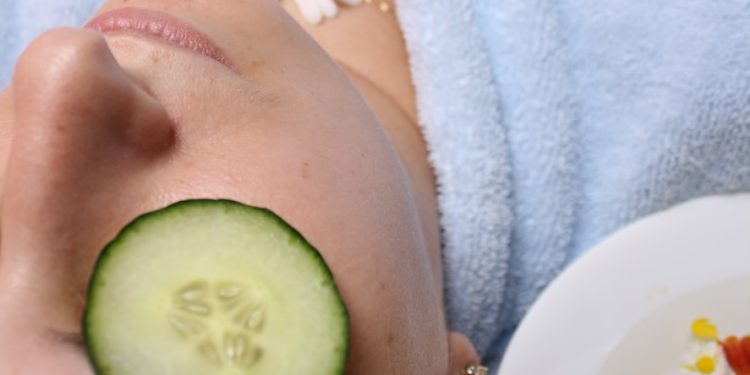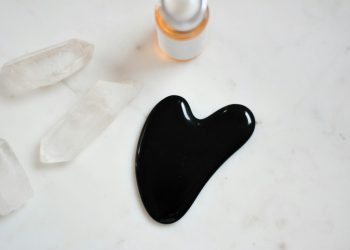Dealing with acne-prone skin can be incredibly frustrating. The constant battle against breakouts, inflammation, and scarring can leave you feeling like clear skin is an impossible dream. While there are countless over-the-counter treatments available, many people are turning to natural remedies to manage their acne. Natural ingredients often come with fewer side effects, are gentle on sensitive skin, and can be highly effective in treating acne. In this guide, we will explore natural remedies for acne-prone skin that can help soothe irritation, reduce breakouts, and support overall skin health.
1. Tea Tree Oil: A Natural Antiseptic
Tea tree oil is one of the most well-known natural remedies for acne, and for good reason. It has powerful antimicrobial and anti-inflammatory properties that help target acne-causing bacteria. When applied to the skin, tea tree oil can reduce redness, swelling, and the size of pimples.
To use tea tree oil, make sure to dilute it with a carrier oil like jojoba or almond oil before applying it to the skin to avoid irritation. Mix a few drops of tea tree oil with a teaspoon of carrier oil and apply it directly to the affected areas with a cotton swab. It’s best to use this remedy at night, as it gives the oil time to work while you sleep.
2. Aloe Vera: Soothing and Healing
Aloe vera is well known for its soothing and hydrating properties, but it also has anti-inflammatory effects that make it effective for treating acne-prone skin. Aloe vera helps reduce redness, soothe irritated skin, and promote healing, which is particularly helpful for acne marks and scars.
Use pure aloe vera gel directly on the skin after cleansing as a lightweight moisturizer or spot treatment. You can also mix it with a few drops of tea tree oil for an added antibacterial boost. Aloe vera is gentle enough to use daily and is suitable for all skin types, including sensitive skin.
3. Honey: Nature’s Antibacterial Wonder
Honey, especially raw or Manuka honey, has natural antibacterial properties that help fight acne-causing bacteria while also providing moisture to the skin. Honey’s natural humectant properties help keep the skin hydrated without clogging pores, making it ideal for those with oily or combination skin.
Apply a thin layer of honey directly to problem areas or use it as a full-face mask. Leave it on for 15-20 minutes before rinsing off with warm water. The gentle yet effective properties of honey can help reduce the severity of breakouts and promote a more even skin tone.
4. Apple Cider Vinegar: Balancing Skin pH
Apple cider vinegar (ACV) is another popular natural remedy for acne, as it helps balance the skin’s pH levels and has astringent properties that tighten pores. ACV is also known for its antibacterial and antifungal effects, which can help prevent acne-causing bacteria from flourishing.
To use ACV, dilute it with water in a 1:3 ratio (one part ACV and three parts water). Apply the mixture to the skin using a cotton pad and leave it on for a few minutes before rinsing. It’s important to do a patch test first, as ACV can be irritating for sensitive skin. Always dilute ACV, as using it undiluted can cause burns and irritation.
5. Green Tea: Antioxidant-Rich Solution
Green tea is rich in antioxidants called catechins, which have anti-inflammatory properties and help reduce sebum production. Green tea can help calm irritated skin, reduce redness, and decrease the appearance of acne lesions. You can apply cooled brewed green tea directly to the skin using a cotton pad, or even use it as a facial mist throughout the day.
You can also make a DIY green tea mask by mixing brewed green tea with honey and applying it to your face for 15-20 minutes. Drinking green tea regularly can also provide internal benefits by reducing inflammation and helping to balance hormones, which can contribute to clearer skin.
6. Witch Hazel: A Natural Astringent
Witch hazel is a natural astringent that helps to tighten pores, reduce inflammation, and remove excess oil from the skin. It can be particularly effective for those with oily, acne-prone skin. Witch hazel is often used as a toner after cleansing to help remove any remaining impurities and balance the skin’s pH.
Apply witch hazel to the skin using a cotton pad, focusing on oily or acne-prone areas. Look for alcohol-free witch hazel to prevent over-drying or irritation. Witch hazel can be used once or twice a day, depending on how your skin responds.
7. Turmeric: Anti-Inflammatory Powerhouse
Turmeric is a powerful anti-inflammatory ingredient that can help reduce the redness and swelling associated with acne. Curcumin, the active compound in turmeric, has antibacterial properties that can prevent the spread of acne-causing bacteria. Turmeric is also known for its ability to lighten hyperpigmentation and acne scars.
Create a turmeric face mask by mixing a teaspoon of turmeric powder with honey or yogurt to create a paste. Apply it to the skin and leave it on for 10-15 minutes before rinsing off with warm water. Be cautious, as turmeric can stain the skin temporarily, but the benefits it provides for acne-prone skin are worth it.
8. Oatmeal: Calming and Absorbent
Oatmeal is a gentle and effective remedy for acne-prone skin, especially if your skin is sensitive. It contains anti-inflammatory compounds called avenanthramides, which help soothe irritated skin, reduce redness, and alleviate itching. Oatmeal also absorbs excess oil, helping to balance oily skin without over-drying.
Prepare oatmeal by cooking it and allowing it to cool before applying it to your face as a mask. Leave it on for 15-20 minutes, then rinse with warm water. You can also mix oatmeal with honey or yogurt for added moisturizing and antibacterial benefits.
9. Zinc Supplements: Healing From Within
Zinc is an essential mineral that plays a role in wound healing, reducing inflammation, and regulating sebum production. Many people with acne-prone skin have found that taking zinc supplements can help reduce the frequency and severity of breakouts.
You can also find topical treatments containing zinc, which can be applied directly to the skin to help reduce redness and calm inflammation. If you’re considering zinc supplements, consult with a healthcare professional to determine the appropriate dosage for you.
10. Avoid Over-Drying and Harsh Chemicals
One of the most important aspects of treating acne naturally is avoiding harsh chemicals and over-drying ingredients that can make acne worse. Many commercial acne treatments contain high concentrations of benzoyl peroxide or salicylic acid, which can strip the skin of its natural oils and cause irritation.
Instead, focus on gentle, natural treatments and avoid over-cleansing or using alcohol-based products. A gentle approach that prioritizes skin health and moisture balance will help your skin heal faster and prevent future breakouts.
Creating a Routine That Works for You
Natural remedies for acne-prone skin can be highly effective when used consistently and with patience. However, it’s important to understand that natural treatments may take longer to show results compared to more aggressive options. Stick to a consistent skincare routine that incorporates these remedies, along with healthy lifestyle habits like eating a balanced diet, drinking plenty of water, and managing stress.
By embracing natural ingredients and giving your skin the care it needs, you can reduce breakouts and achieve clearer, healthier skin. It’s all about finding what works for you and maintaining a routine that’s gentle, balanced, and effective.















Discussion about this post